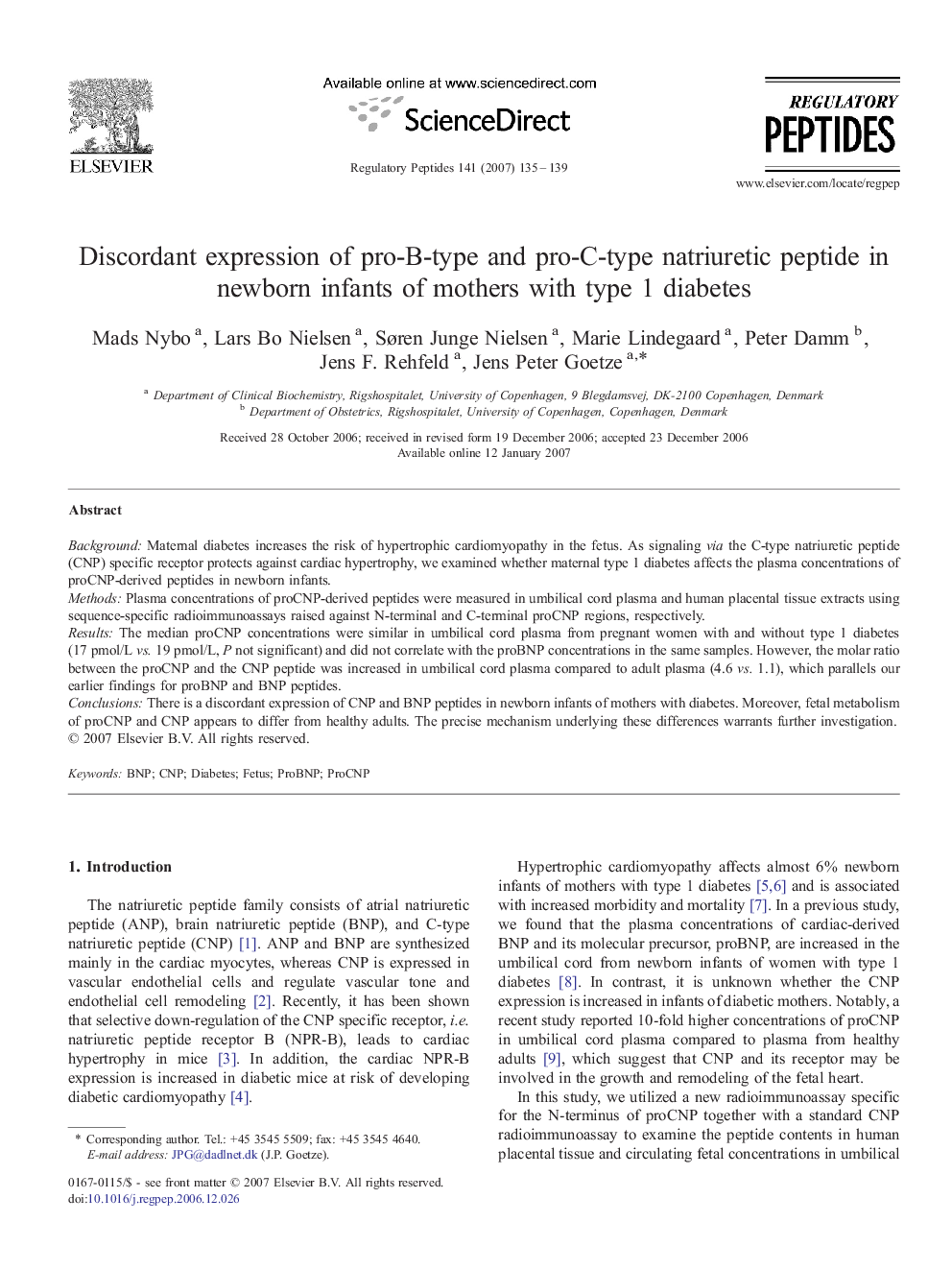| Article ID | Journal | Published Year | Pages | File Type |
|---|---|---|---|---|
| 2023303 | Regulatory Peptides | 2007 | 5 Pages |
BackgroundMaternal diabetes increases the risk of hypertrophic cardiomyopathy in the fetus. As signaling via the C-type natriuretic peptide (CNP) specific receptor protects against cardiac hypertrophy, we examined whether maternal type 1 diabetes affects the plasma concentrations of proCNP-derived peptides in newborn infants.MethodsPlasma concentrations of proCNP-derived peptides were measured in umbilical cord plasma and human placental tissue extracts using sequence-specific radioimmunoassays raised against N-terminal and C-terminal proCNP regions, respectively.ResultsThe median proCNP concentrations were similar in umbilical cord plasma from pregnant women with and without type 1 diabetes (17 pmol/L vs. 19 pmol/L, P not significant) and did not correlate with the proBNP concentrations in the same samples. However, the molar ratio between the proCNP and the CNP peptide was increased in umbilical cord plasma compared to adult plasma (4.6 vs. 1.1), which parallels our earlier findings for proBNP and BNP peptides.ConclusionsThere is a discordant expression of CNP and BNP peptides in newborn infants of mothers with diabetes. Moreover, fetal metabolism of proCNP and CNP appears to differ from healthy adults. The precise mechanism underlying these differences warrants further investigation.
